Last summer, moved by the discoveries of unmarked graves at Residential Schools, and the upcoming National Day of Truth and Reconciliation, parishioners at St John’s, Elora began an initiative called Walking in Right Relations. The aim of this group was for us to learn more about the history and legacy of residential schools, to discern ways to take public, communal, and personal action in response to our learning.
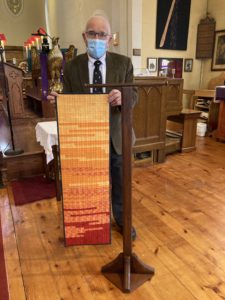
Since the group first met, we have undertaken a number of projects; some are in the planning stage, some have been initiated and borne fruit. One particular project that has grown and inspired us over the year began with our public observance of the first National Day of Truth and Reconciliation in September 2021. St John’s parishioners and the local community were invited to tie ribbons made of strips of orange cotton cloth onto the trees around the church and parish centre as a public witness to our grief and solidarity over the discovery of thousands of unmarked graves of Indigenous children on the sites of former Residential Schools.
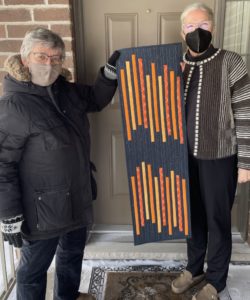
Over the course of three weeks, a couple of hundred ribbons were tied onto the trees, bushes, and branches around our parish. Passers-by could stop on our front porch and find educational materials about the Truth and Reconciliation Commission and the repudiation of the Doctrine of Discovery. (Pamphlets are available for print on the Anglican Church of Canada website.)
Jane Rajantie, member of the Walking in Right Relations team, and also part of our knitters and quilters group, was inspired by the words of an Indigenous elder she heard interviewed on the radio who called on Canadians to remember the Indigenous story and presence on the land by keeping an empty chair present at meetings or gatherings.
Inspired to take this call one step further, Jane gathered up all of the ribbons from the trees. She wondered how the pieces of our public witness could be transformed into a permanent reminder of our commitments. They were faded from their month out in the wind and rain—nevertheless, she washed and trimmed them. They sat in neat rows on her quilting table as she waited through the autumn for inspiration to come; it was hard to imagine how to make a quilt out of one-inch strips of frayed fabric!
Late in the winter, Jane finished the quilt. She described the process as both a spiritual exercise and a labour of love as she painstakingly stitched together a beautiful two-sided quilt—one with striking orange strips against a dark background like the night sky, and the other side a flame-coloured sunset. She included red ribbons on the sunset design to also remember missing and murdered Indigenous women, girls, and gender-diverse people (MMIWG2S).
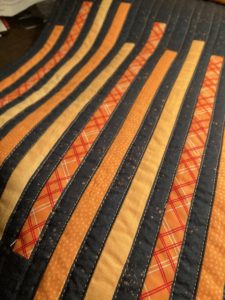
This small quilt was gifted back to the church, to be present at worship and other gatherings and remind us of our commitment to continue to remember, learn, and respond. Later, Gordon Bristowe—a talented woodworker in the parish—created a wooden stand for it to be displayed either folded or full-length. This quilt is now displayed at weekly worship, and “attends” meetings such as parish council and vestry (in its own Zoom window instead of a chair, for the time being). It reminds us of our continued commitment to walk in right relations with our Indigenous siblings.
Editor’s Note: May 5th has been officially established as Red Dress Day to remember missing and murdered Indigenous women, girls, and gender-diverse people. Red Dress Day was established with the unveiling of Métis artist Jaime Black’s REDress project, an aesthetic response to the findings of the 2014 report by the RCMP, titled Missing and Murdered Aboriginal Women: A National Operational Overview. This report revealed that more than 1,000 Indigenous women and gender-diverse people went missing or were murdered in Canada over the previous 30 years. For more information, and to register for virtual events organized this year by Brock University, visit https://bit.ly/BrockRedressDay.
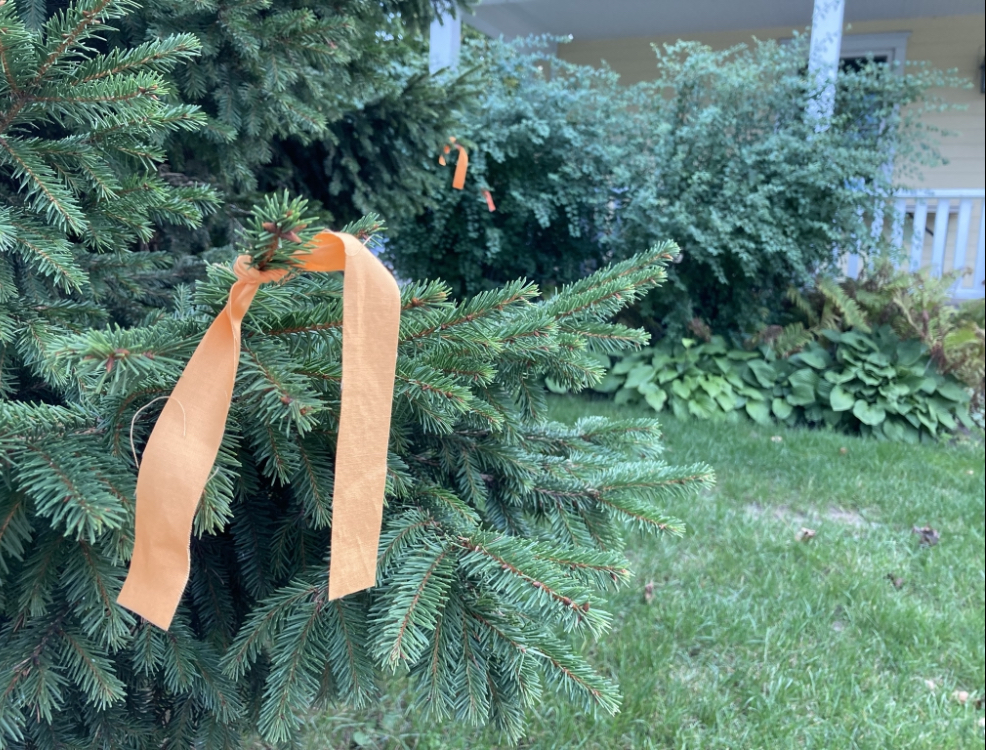
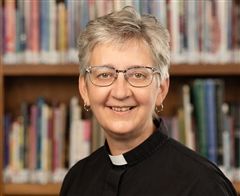

Euchre and the Meaning of Life